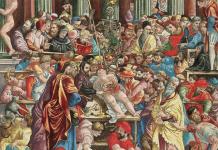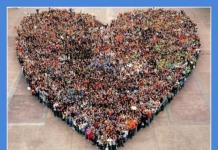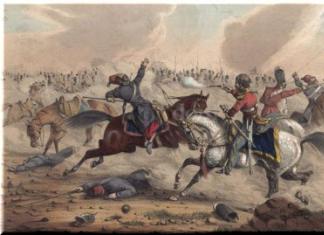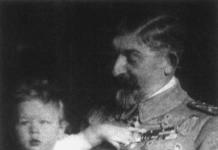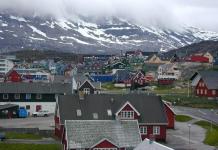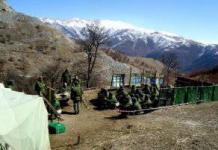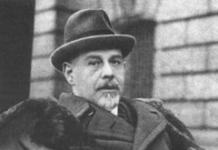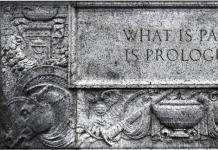Horizontally
3. The set of movements of parts of a person's face, expressing his emotional state or attitude to what he perceives (imagines, ponders, recalls, etc.).
6. Outwardly, this feeling is manifested by wide-open eyes and wide-open mouth.
10. Another immoral feeling, base emotional manifestation of personality
11. A positive emotional state that promotes the development of skills and abilities. It manifests itself in a slowing of the heart rate
13. Psychological state, which is characterized by dulling of interest in other people, in the surrounding reality.
14. Inattention is different
17. Negatively colored emotion arising in case of significant dissatisfaction of a person in any aspects of his life
21. The state of mental tension, due to the adaptation of the human psyche, his body as a whole to the complex, changing conditions of his life
22. The feeling of a stable emotional predisposition of a person to other people
23. In English stress, but in Russian
Vertically
1. A process of medium duration, reflecting a subjective evaluative attitude towards existing or possible situations
2. The ability of a person to empathize, the ability to "feel" into the state of another person, to understand him not "with the mind", but with the "heart".
4. Emotional attitude
5. Immoral feeling, base emotional manifestation of personality
7. A relatively long, more or less stable mental state of moderate or low intensity, manifested as a positive or negative emotional background of a person's mental life
8. A negative emotional state caused by an object, contact with which comes into sharp conflict with the principles and attitudes of the subject
9. Negatively colored emotion, expressing a feeling of uncertainty, expectation of negative events, hard to define premonitions
12. The state of emotional passivity, indifference and inactivity; characterized by a simplification of feelings, indifference to the events of the surrounding reality and a weakening of motives and interests.
14. The feeling of satisfaction with what has been achieved, a pleasant surprise.
15. The process of managing a person's own psychological and physiological states, as well as actions.
16. A state of complete mental balance.
18. Expressive movements of the muscles of the face (lips, eyes and cheeks), showing a disposition to laugh or expressing pleasure, greeting, kindness or irony
19. Pathologically increased joyful mood.
20. What emotions can be caused by
23. Spiteful - a melancholy mood, characterized by irritability, cynicism, dissatisfied hostile or aggressive attitude towards everything around.
Anastasia Nikanorova
Psychologist's crossword puzzle
kindergarten.
(themes: emotions, boys and girls, how different we are, friendship, profession, name, communication, preparation for school.)
Horizontally:
1. She is the main source of knowledge. (book)
3. When our best friend leaves, we feel ... (sadness)
4. What helps us grow up? (work)
6. Everyone has it and carries some meaning. (name)
7. This beautiful word we say when we thank someone. (Thank you)
9. The best thing we can give our parents and educators. (obedience)
10. Leading activity in kindergarten (the game)
12. Joy, fear, surprise, sadness, anger - all this ... (the senses)
13. Leading activity in the school. (studies)
15. The most intelligent creature on Earth (Human)
21. This feeling warns of danger. (fear)
Vertically:
2. The main means of communication with each other. (communication)
3. Each of us will receive it to help others (profession)
When we do not know how to communicate we ... (argument)
8. There we will receive useful knowledge that will help us become a professional in the future. (school)
11. Feeling that makes us happy (joy)
14. She is strong, will not break, will not collapse from sorrows and blizzards ... (friendship)
16. When we say this word, we wish health to the one we are talking to. (Hello)
17. They become mothers, teachers, educators (girl)
19. The time of year when everything around comes to life. (Spring)
20. They become dads, builders, captains (boy)

Related publications:
"Journey to the Country of Mathematics". Open final lesson in mathematics in the preparatory group Purpose: Consolidation of mathematical knowledge.
Final integrated lesson "Travel to the country of preschool children" Objectives: 1. To generalize the knowledge gained during the year: to consolidate the counting and order of numbers (up to 10 and back, to consolidate the ability to conduct sound.
Final open lesson in the middle group "Journey to the Land of the Smurfs""Travel to the country of Smurfs" Purpose: - to show parents the level of preparation of children for a year of study in kindergarten - to consolidate the knowledge of children.
Final lesson in the senior group "Travel to the land of knowledge" Final lesson in senior group Topic: "Travel to the land of knowledge" Program content: Educational tasks: travel in a playful way.
Final lesson on FEMP "Travel to the Land of Mathematics" in the preparatory group for school Objectives: to generalize knowledge and consolidate the skills of children according to the material covered: to solve examples, problems, the ability to compare numbers, to name the next.
Final lesson on the development of speech in the senior group "Travel to the land of fairy tales" Technological map (construct) Topic: "Travel to the land of fairy tales" Age group: 5-6 years old Form of joint activity: subgroup.
28-06-2016, 19:33
Positive emotions are a very vague concept. Usually, " positive emotions"means the same as" positive emotions ", but there are still some differences between these concepts.
Usually, under "positive" emotions, feelings and states it makes sense to understand everything that has a pleasant emotional background, is experienced as a kind of pleasure.
On the other hand, "positive" emotions, feelings and states denote emotions, feelings and states that receive a positive assessment from the person himself or from those around him.
Positive human emotions(like any other emotion) have an impact on his physical condition and health. If these are positive, joyful emotions, feelings, then the effect will be beneficial. But if emotions are negative, then this can result in weakness, illness and depression.
Positive emotions for an elderly person are especially important, since at this difficult age the body's defense against external influences, shocks and other misfortunes has significantly weakened. It can be completely knocked down by a few negative impulses, or strengthened by several positive ones.
What do we know joys of old age? In old age, human ambitions and the scope of desires will be much less than that of young people. Very often, old people pay attention to the fact that the majority in ordinary life does not occur to notice. Due to their limited time reserve, many elderly people try to enjoy every moment, every little thing, right up to the good weather or the flight of a beautiful bird.
We can say that the elderly are pleased even by the fulfillment of their natural and basic needs... If we approach this problem from the point of view of the Maslow pyramid, then we can thus distinguish several levels of satisfaction of the elderly.
First and basic level physical needs(sleep, hunger ...). Many old people have health problems, therefore, their body does not always cope even with its standard tasks. Therefore, a healthy appetite and sound sleep can be the first reason for joy.
The next level is the need for security. The closer the old age, the more fears we have. We are afraid to be alone, we are afraid for our health, we are afraid that we will not be in time for something, and so on. The best cure for this kind of fear is to be constantly in society, with friends, peers, relatives ... One of the reasons why boarding houses for the elderly in St. Petersburg so popular.
Then comes the need for communication, spiritual closeness, love ... Should we not know how older people love to talk and see that they are carefully listened to, understood, sympathized with, and show participation. Nursing home in St. Petersburg region it will also easily satisfy this desire, since there are always many guests of the same age and service personnel who will always listen to you and support you.
The level of the need for respect and self-respect among the older generation is not as pronounced as among young people. Perhaps the old people are not chasing fame, primacy, or recognition, but they will be extremely unpleasant to be rude towards them. Basic politeness can help you please your grandfather.
The last stage speaks of self-development, self-realization. This is a very controversial stage for an older person. Old age, unfortunately, is not the best age for such aspirations, therefore happiness of the elderly usually excludes (in whole or in part) this basic human need from its mental component.
Summarizing all of the above, boarding house for the elderly will bring joy to your family and friends, providing them with the fulfillment of all the necessary and basic human needs.
 1) Direct biased experience of the life meaning of phenomena and situations, conditioned by the relation of their objective properties to the needs of the subject, is. ... ... A) emotions B) the personal meaning of the situation C) feelings D) thinking 2) Experiences arise and change in connection with the changes occurring in environment or the body is. ... ... function of emotions. A) regulating B) signal C) communicative D) interfering
1) Direct biased experience of the life meaning of phenomena and situations, conditioned by the relation of their objective properties to the needs of the subject, is. ... ... A) emotions B) the personal meaning of the situation C) feelings D) thinking 2) Experiences arise and change in connection with the changes occurring in environment or the body is. ... ... function of emotions. A) regulating B) signal C) communicative D) interfering
 3) B. ... the theory of emotions, the degree of emotional stress is determined by the need and the lack of information necessary to satisfy this need. A) cognitive dissonance B) biological C) informational D) peripheral 4) According to the theory. ... ... the person has fun because he smiles. A) cognitive dissonance B) biological C) informational D) peripheral
3) B. ... the theory of emotions, the degree of emotional stress is determined by the need and the lack of information necessary to satisfy this need. A) cognitive dissonance B) biological C) informational D) peripheral 4) According to the theory. ... ... the person has fun because he smiles. A) cognitive dissonance B) biological C) informational D) peripheral
 5) According to theory. ... ... a positive emotional experience arises when the actual results of the activity correspond to the expected, and negative - when they do not correspond. A) cognitive dissonance B) biological C) informational D) peripheral 6) The basis for the separation of emotions into sthenic and asthenic is (are). ... ... A) needs B) mobilization of the body's resources C) strength and duration of manifestations D) sign
5) According to theory. ... ... a positive emotional experience arises when the actual results of the activity correspond to the expected, and negative - when they do not correspond. A) cognitive dissonance B) biological C) informational D) peripheral 6) The basis for the separation of emotions into sthenic and asthenic is (are). ... ... A) needs B) mobilization of the body's resources C) strength and duration of manifestations D) sign
 7) The criterion for dividing emotions into lower and higher is (are). ... ... A) the strength and duration of manifestations B) mobilization of the body's resources C) needs D) sign 8) A strong, persistent, long-lasting feeling that captures a person and owns him is called. ... ... A) feeling B) affect C) mood D) passion
7) The criterion for dividing emotions into lower and higher is (are). ... ... A) the strength and duration of manifestations B) mobilization of the body's resources C) needs D) sign 8) A strong, persistent, long-lasting feeling that captures a person and owns him is called. ... ... A) feeling B) affect C) mood D) passion
 9) A strong emotional state of an explosive nature, affecting the entire personality, characterized by a violent course, a change in consciousness and a violation volitional control, - it. ... ... A) affect B) passion C) frustration D) stress 10) The state of a person caused by insurmountable difficulties arising on the way to achieving the goal is defined as. ... ... A) affect B) passion C) frustration D) stress
9) A strong emotional state of an explosive nature, affecting the entire personality, characterized by a violent course, a change in consciousness and a violation volitional control, - it. ... ... A) affect B) passion C) frustration D) stress 10) The state of a person caused by insurmountable difficulties arising on the way to achieving the goal is defined as. ... ... A) affect B) passion C) frustration D) stress
 11) The longest emotional state that colors all human behavior is called. ... ... A) affect B) passion C) frustration D) stress E) mood 12) The experience of satisfying a need for something is called. ... ... A) joy B) interest C) surprise D) bewilderment
11) The longest emotional state that colors all human behavior is called. ... ... A) affect B) passion C) frustration D) stress E) mood 12) The experience of satisfying a need for something is called. ... ... A) joy B) interest C) surprise D) bewilderment
 13) The experience of one's own inability to be at the height of the requirements that a person makes to himself, the experience of dissatisfaction with oneself is this. ... ... A) grief B) shame C) anger D) fear 14) Will -. ... ... regulation by a person of his behavior, associated with overcoming internal and external obstacles. A) intuitive B) unconscious C) conscious D) involuntary
13) The experience of one's own inability to be at the height of the requirements that a person makes to himself, the experience of dissatisfaction with oneself is this. ... ... A) grief B) shame C) anger D) fear 14) Will -. ... ... regulation by a person of his behavior, associated with overcoming internal and external obstacles. A) intuitive B) unconscious C) conscious D) involuntary
 15) Parameter (s) are used to describe volitional processes. ... ... A) only strength and direction B) only direction C) only direction and freedom D) strength, direction and freedom 16) The ability of a person to long-term and unabated tension of energy, steady movement towards the intended goal is manifested as. ... ... A) persistence B) conscientiousness C) optimism D) hard work
15) Parameter (s) are used to describe volitional processes. ... ... A) only strength and direction B) only direction C) only direction and freedom D) strength, direction and freedom 16) The ability of a person to long-term and unabated tension of energy, steady movement towards the intended goal is manifested as. ... ... A) persistence B) conscientiousness C) optimism D) hard work
 17) The ability of a person to determine his actions based on his beliefs, knowledge, and not the pressure of others, characterizes him. ... ... A) self-confidence B) adherence to principles C) conscientiousness D) persistence
17) The ability of a person to determine his actions based on his beliefs, knowledge, and not the pressure of others, characterizes him. ... ... A) self-confidence B) adherence to principles C) conscientiousness D) persistence
Horizontally: 1. Uniqueness, originality of the psyche and personality of a person. 2. A keen observer, expert in human psychology. 3. The past. 4. Reflection of the properties of objects of the objective world as a result of their impact on the senses. 5. The work of a child psychologist to prevent possible ill-being in the mental and personal development of the child. 6. Concentration of perception, thought on something. 7. Incentives that cause the activity of the individual and determine its direction. 8. "Mutual conversation, communicative speech between people, their verbal communication, the exchange of feelings and thoughts in words" (VI Dal). 9. The one for whom the child practical psychologist operates. 10. Preservation and reproduction in the mind of a person of previous impressions, knowledge, experience. 11. The classical form of verbal communication, in which the statements of the interlocutors replace each other. 12. Temporary release from work for rest, subjectively perceived as very short. 13. The extreme degree of commitment to any idea or deed based on blind faith in the correctness of their judgments and actions. 14. One of the largest Russian child psychologists. 15. Period, stage in the development of the child. 16. Empathy for another person. 17. Development of the human psyche during his life. 18. The totality of all mental, spiritual properties of a person, manifested in his behavior. 19. A person's tendency to experience anxiety. 20. A person who has reached such a level of mental development that makes him able to control his behavior and activities, to be independent in his judgments and relationships. 21. Period (sometimes very stormy) transition from one stage age development child to another. 22. Need, need for something that requires satisfaction. 23. Use of scientific data, inventions, discoveries in practice. 24. The use of a practical psychologist of standardized questions and tasks that have a certain scale of values.
Vertical: 2. Psychological research of a person in order to identify the level of development and individual characteristics of his psyche. 3. Internal, mental, emotional state of a person. 4. The mental process, which consists in the creation of new images, new concepts based on perceptions and ideas received in the past experience. 5. Willingness to act selflessly for the benefit of others, regardless of their own interests. 6. Mutual support in activities, joint work... 7. Attractive power, charm. 8. The striving of a person to the fullest possible identification and development of his personal capabilities. 9. One of the newly emerging privileged average educational institutions... 10. Ink spot on paper. 11. Transformation of forms of external objective activity, transferred to the internal plane, into mental processes. 12. Ability to notice essential, including subtle, features of objects and phenomena. 13. Slow, unperturbed person with stable aspirations and more or less constant mood, with a weak external expression of mental states. 14. One of the famous Russian psychologists, founder of the Leningrad psychological school. 15. Individual characteristics a person, which are expressed in the speed of occurrence, the depth and strength of occurrence, the depth and strength of the manifestation of feelings, in the speed of movement, general mobility. 16. One who works with someone else. 17. Teaching about numbers, denoted by numbers, and about actions on them. 18. Constant attraction, disposition to something. 19. Any thorny plant, as well as a single thorn (old). 20. Room required for work practical psychologist, but not always provided to him. 21. A sense of moral responsibility for their behavior in front of people around.
Answers: Horizontally: 1. Individuality. 2. Psychologist. 3. Retro. 4. Feeling. 5. Prevention. 6. Attention. 7. Motivation. 8. Conversation. 9. Child. 10. Memory. 11. Dialogue. 12. Vacation. 13. Fanaticism. 14. Zaporozhets. 15. Age. 16. Empathy. 17. Ontogenesis. 18. Character. 19. Anxiety. 20. Personality. 21. Crisis. 22. Need. 23. Implementation. 24. Testing. Vertical: 2. Psychodiagnostics. 3. Mood. 4. Imagination. 5. Altruism. 6. Interaction. 7. Charm. 8. Self-actualization. 9. Lyceum. 10. Blot. 11. Interiorization. 12. Observation. 13. Phlegmatic. I. Ananiev. 15. Temperament. 16. Employee. 17. Arithmetic. ^. Inclination. 19. Thorns. 20. Cabinet. 21. Conscience. 22. Feelings. Section III. FEELINGS AND WILL
Emotions and will are the emotional and volitional components of any mental processes. So, when solving a problem, the thinking process includes our attitude to the problem (emotion), our goal and effort to resolve it (will).




